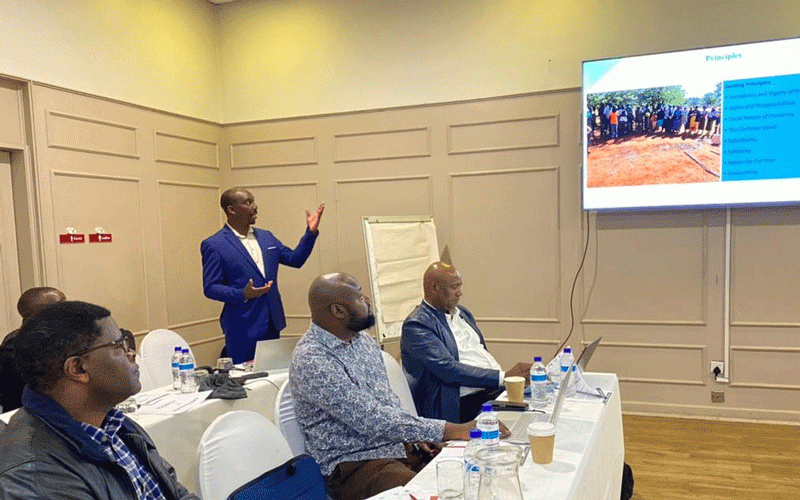
Proper rangeland interventions remain crucial in the sustainable management of arid areas for the benefit of current and future generations.
Communities enjoy ecosystem services provided by the rangelands, such as water, grass, and soil to produce high-quality agricultural products while maintaining a healthy ecosystem where wildlife, flora and fauna flourish.
However, communal rangelands in semi-arid areas like Beitbridge are now heavily degraded due to the combination of poor management and grappling with the effects of climate change.
More than 61% of the Zimbabwean population live in rural areas and rely on rangeland, underlining its importance in socio-economic wellbeing.
To improve the livelihoods of vulnerable farmers through rangeland management practices in Beitbridge, Catholic Relief Services (CRS), in partnership with Caritas Masvingo, is implementing the Beitbridge Rangeland Improvement Project (BRIP) in five wards.
The 12-month charitable-giving funded project is targeting 1 600 households and is aimed at strengthening community rangeland structures and introduce supplementary feeding through fodder, taking pressure off the range.
To ensure project sustainability, CRS works with the Agricultural Advisory and Rural Development Services, Forestry Commission Zimbabwe, Beitbridge Rural District Council, the Department of Climate Change, and the Environmental Management Agency (EMA).
CRS has commissioned the solarisation of two community boreholes and established nurseries in all the operational wards since last year.
- GBV survivors share horrific stories
- GBV survivors share horrific stories
- CRS commemorates Community Day
- CRS paves way to rangeland management
Keep Reading
When the nurseries mature, they will facilitate the planting of 5 000 leukaena trees for use as fodder, firewood, and fencing poles, among other domestic and agricultural purposes.
The BRIP project has also achieved considerable milestones in rangeland management.
Some of these milestones are community sensitisation, strengthening existing community committees, establishing woodlots and homestead woodlots, developing grazing plans and contributing to the development of bylaws.
To take a step further in rangeland management, CRS recently hosted a rangeland dialogue meeting in Harare to develop the Rangeland Management Guide.
This was upon a consensus amongst the stakeholders that no recent guiding document in rangeland management has factored in the recent changes in demography, land use, and the environment.
The workshop drew management expertise from the government, academia, donors, and traditional leaders.
The consultative discussion centered on the current state of rangelands in Zimbabwe (and Beitbridge) and factors contributing to their condition, applicable rangeland management strategies and their limitations, and the structure and key information that would need to be reflected in the rangeland management guide.
Speaking at the Rangeland management meeting climate adaptation officer in the Environment, Climate and Hospitality ministry Benjamin Mandevere said land degradation was a global issue and Zimbabwe is not spared.
“The rangelands which offer various ecosystem services to rural and urban habitants are under stress,” he said.
“The government recognises the potential risk posed by land degradation in eroding development gains, undermining the implementation of National Development Strategy 1, getting the country to an upper-level economy by 2030, and attaining Sustainable development Goals.
“Several steps have been taken by the government and these include being part of the United Nations Convention to Combat Desertification and Drought, which it ratified in 1997 aimed at contributing to the development and implementation of programmes and strategies to avoid, reduce, and reverse land degradation both nationally and globally.
“Policies have also been put in place to create an enabling environment which includes the Environmental Assessment Policy, National Environmental Policy, and Population Policy.
“Zimbabwe made its commitment in 2018 to rehabilitate two million hectares by 2030.
“We are gathered here to strategise on how development partners, the private sector, academia, farmers, and government can work together to contribute to the above-mentioned targets.”
*Tariro Mhute is the Communications and Documentation Officer at CRS. For more information please email: [email protected]










